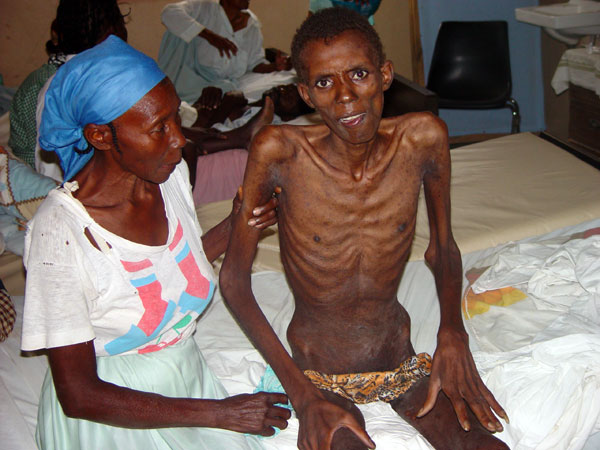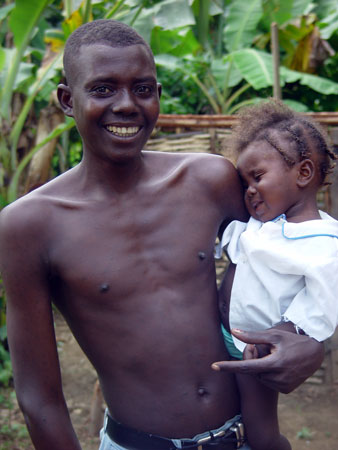I just returned from Dr. Paul Farmer’s talk at IDEO in Palo Alto. What is perhaps most inspiring about Farmer is his use of humor and stories—particularly the sorts of stories that confirm un-sexy truths about working in the social sector. One of these truths is that the search for the “killer app” (known outside of Silicon Valley as the “magic bullet” or similar one-dimensional cure-all) often misses the broader issues at play in social justice work.  ---->
----> 
In Farmer’s case, these broader issues are what underlie the dire health outcomes observed in the places like Haiti, Rwanda, and Lesotho, where his organization Partners in Health treat patients. His patients often come to him with non-medical requests: can he help them send their children to school? Find a job? Without addressing these root issues, Farmer says, doing public health work is of little consequence.
Focusing on the broader issues requires engaging people, not machines, to visit with and monitor patients on a regular basis. Notes Farmer: “This isn’t nuclear science, and it’s hard to sum up in a sexy package. Donors often wonder whether paying community health workers is sustainable and cost-effective. They want to see something like a ‘palm doc’—a small machine that poor people can use in place of an actual person. A palm doc is not going to do what humans can.” Take, for example, the case of Joseph Jeune, one of Farmer’s AIDS patients in Haiti:
 ---->
----> 
Joseph Jeune, age 26, before treatment Joseph Jeune, six months later
What’s the lesson here? Automation isn’t everything. Early on at Samasource, I spoke with a potential donor and early Google employee who told me that what we were doing was great, but it didn’t seem very scalable. “You rely on human reviewers,” he said, “to screen applications manually—so there are limitations on what you can do. I’m looking to fund a solution that’s horizontal and highly automated.” It’s refreshing to hear people like Dr. Farmer remind us, in Silicon Valley of all places, that in the rush to automate and scale anything that seems to work in the business of solving poverty, we may forget our most valuable asset: people.
No comments:
Post a Comment